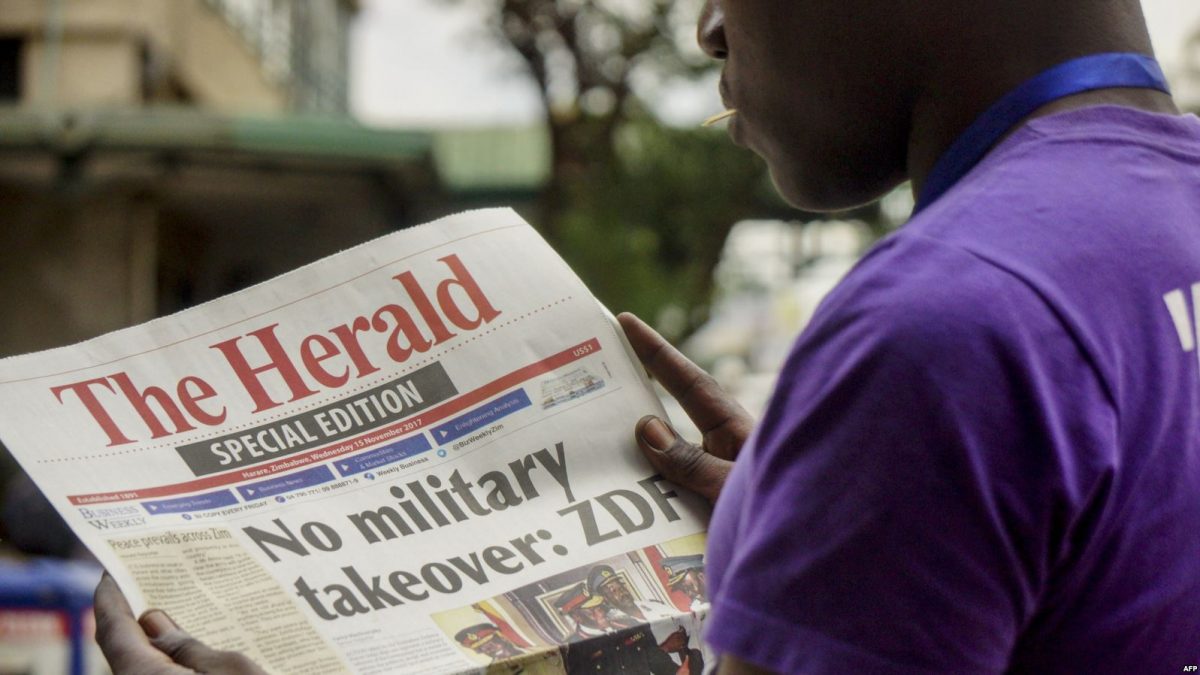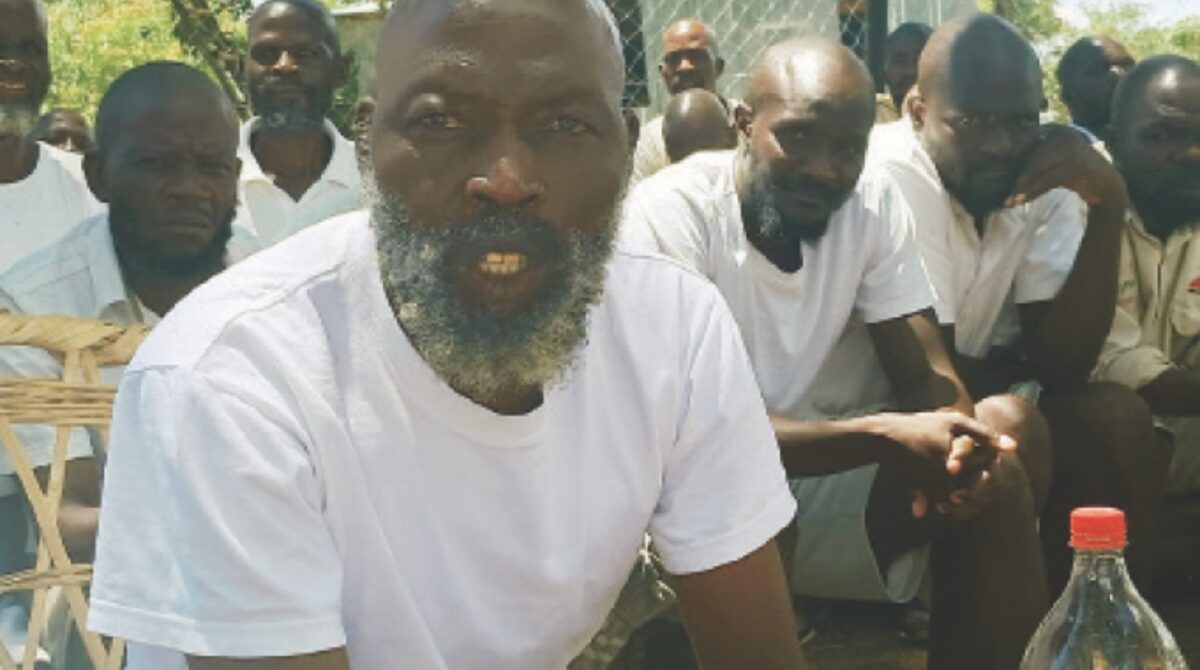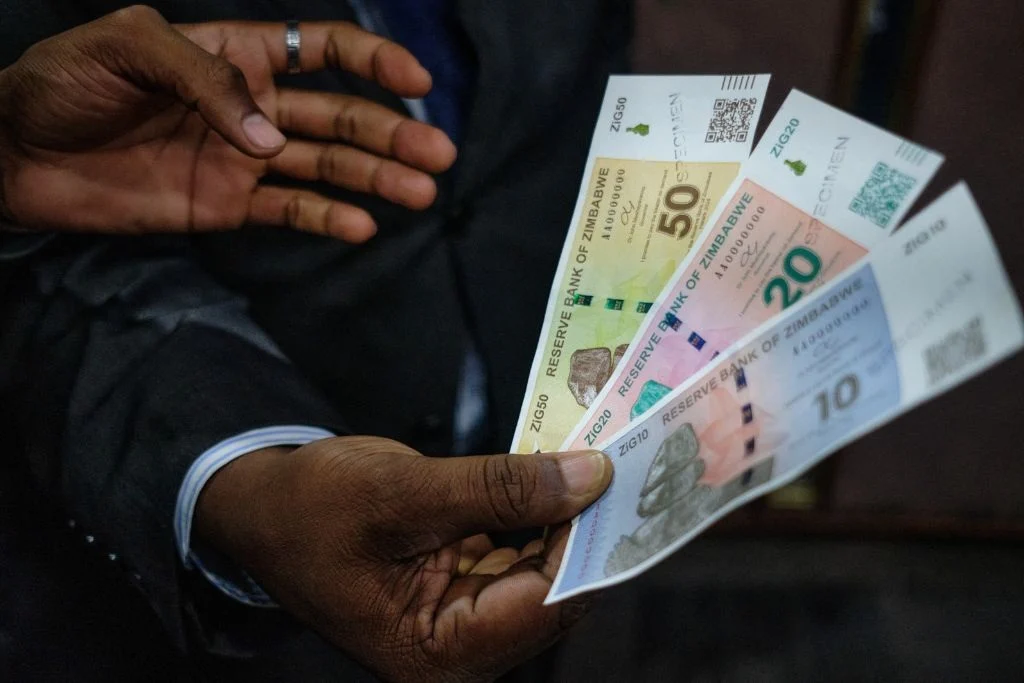HARARE – Zanu PF enjoys disproportionate coverage in Zimbabwe’s state media in breach of the constitution, the Masvingo High Court has ruled in a landmark judgment.
The Zimbabwe Broadcasting Corporation (ZBC) and the Zimbabwe Newspapers Group (Zimpapers) have “conducted themselves in material breach of section 61 of the constitution”, said Justice Joseph Mafusire in a case brought by the legal watchdog, Veritas, in the run-up to elections last year but only decided last month, with the judgment being availed on Wednesday.
The judge added: “There is cogent evidence from independent and dispassionate sources of the evident bias of the public media in this country in favour of the Zanu PF party, its leadership, members and supporters. They enjoy a disproportionate amount of coverage in both the electronic and print media.”
The challenge had been brought by Veritas, through their lawyer Doug Coltart, asking the court for an order directing state media to be objective.
Ruling in Veritas’ favour, Justice Mafurise said the ZBC and Zimpapers were in breach of the constitution “in that they have not been impartial and free to determine independently the content of their broadcasts or other communication… and have not afforded fair opportunity for the presentation of divergent views and dissenting opinions.”
The judge ordered the two organisations to “exercise impartiality and independence in the editorial content of their broadcasts or other communication” and to “afford fair opportunity for the presentation of divergent views and dissenting opinions by ensuring that their communications do not show bias in favour of one political party or its candidates against the others.”
As the case dragged on well after the elections, the ZBC argued that “the matter has been overtaken by events” but the judge said the issues being raised broadly addressed the duties of the public media in Zimbabwe at all times, but particularly at election times.
Zimpapers elected not to contest the application.
The ZBC also claimed the MDC in particular had not shared its diary of events to enable it to cover such events.
The public broadcaster, which enjoys a TV monopoly, also argued through its lawyers that equitable coverage is not possible in the Zimbabwean context because Zanu PF fielded candidates in every seat, which its rivals failed to do.
The judge found the argument to be “at war with the law.”
“If a political party is registered it becomes entitled to fair and equitable access to the public media,” said Justice Mafusire.
The judge cited the case of the Ghanaian political party, the New Patriotic Front vs Ghana Broadcasting Corporation, in which Justice Francois said: “A denial of opportunity for the expression of opposing views, inherent in a democracy, would amount to moves which may culminate in the creation of a monolithic government which is only one step removed from a one-party government.”
In scathing remarks, the judge said the ZBC and Zimpapers’ political programmes were “largely positive only in respect of the Zanu PF party, but largely negative in respect of the opposition parties, particularly the MDC Alliance.”
“Opinion pieces by guest writers, especially in the print media, disgorge hate and inflammatory language,” Justice Mafusire added.
The judgment will embolden opposition parties who accuse Zanu PF of capturing state media, effectively tilting the electoral field in their favour.
The bias was noted by several election observer missions. Media Monitors said Zanu PF had an 87 percent slice of the political coverage on ZBC, and 63 percent in Zimpapers publications including The Herald, The Chronicle and the Sunday Mail.















